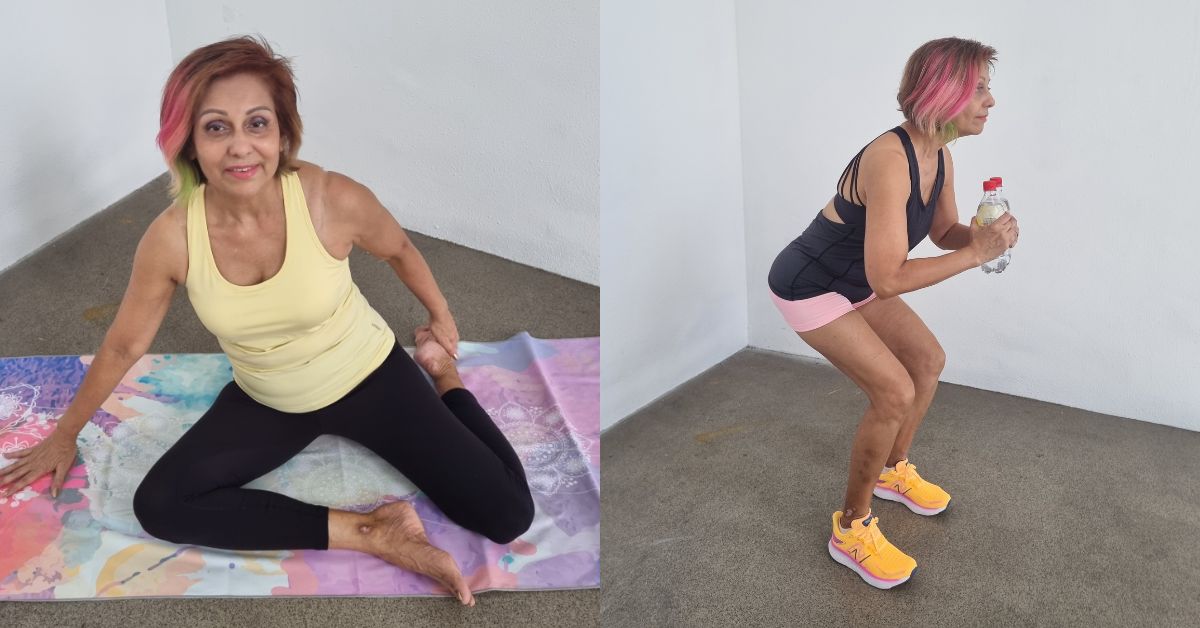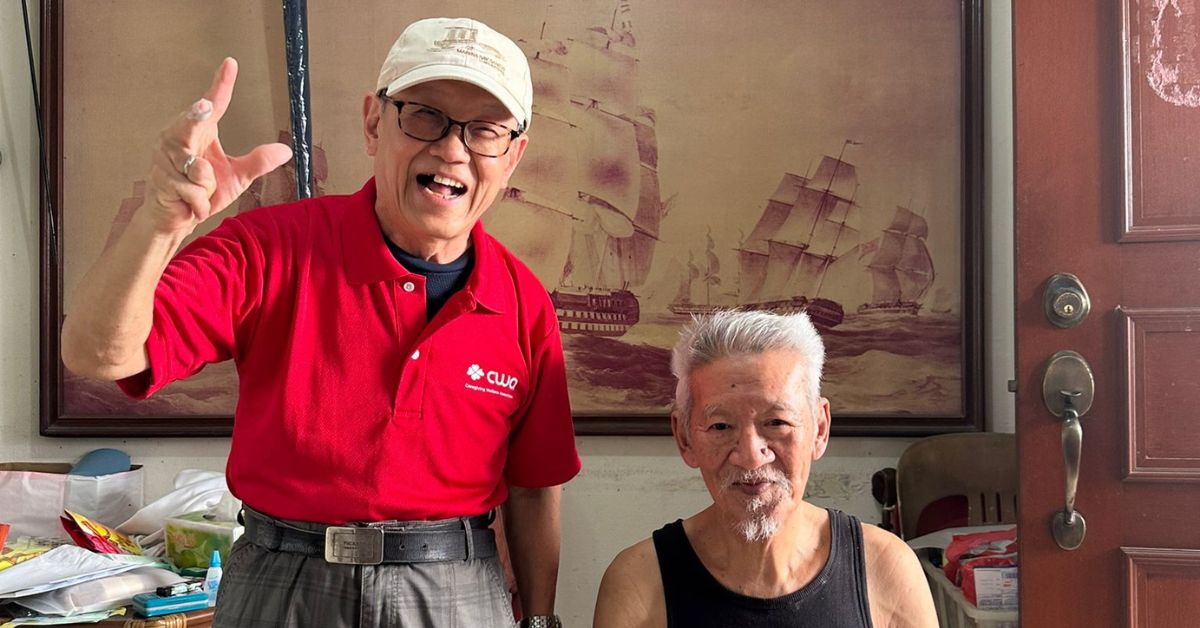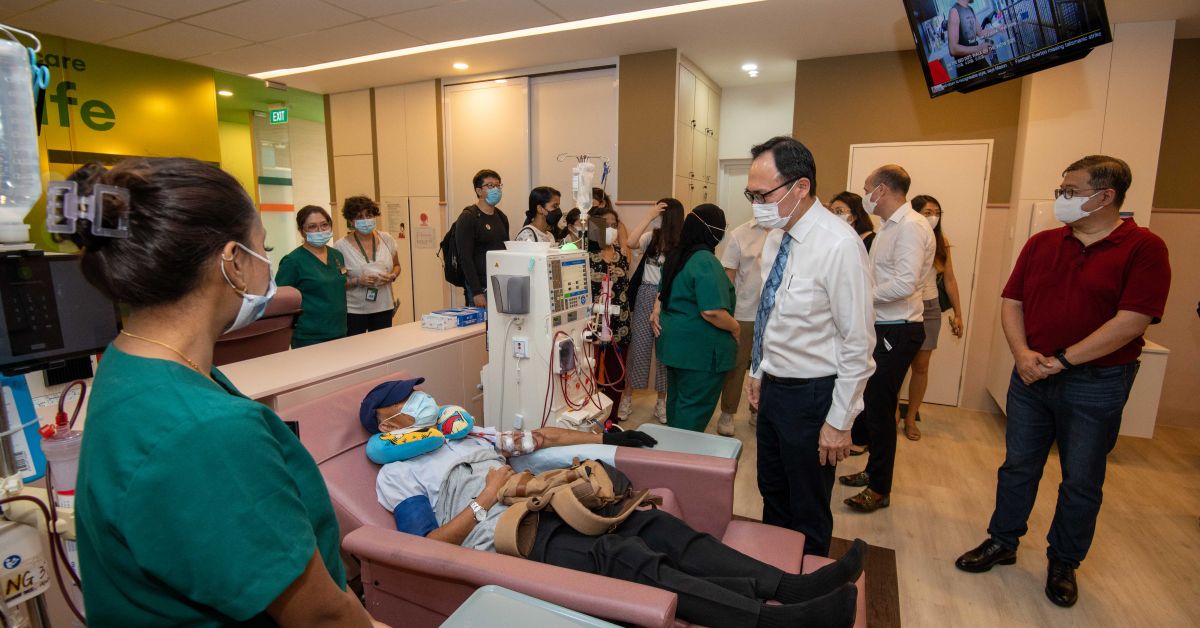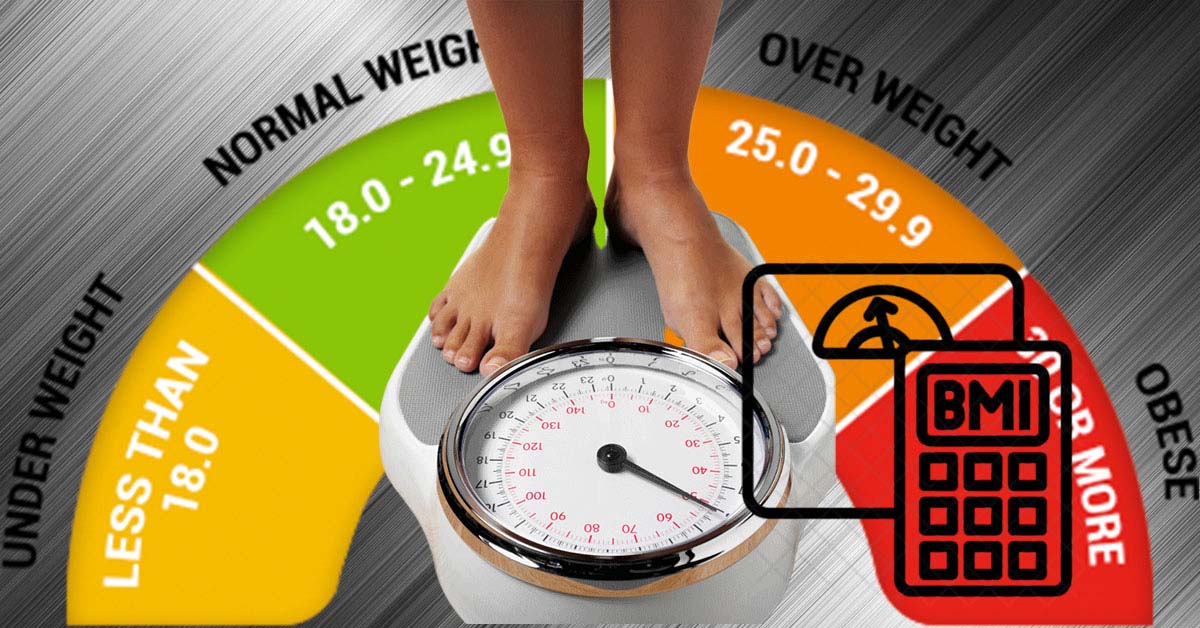
The silver generation is facing a weighty problem.
The good life is seeing a rise of obesity cases in the older population.
To bring your weight under control you have to adopt the correct strategy as weight management in the elderly group differs slightly from that of young adults.
Let’s understand a bit more about changes in weight and body composition when aging.
Advertisement
1. Your body changes as you age
You start to lose lean body mass like muscle and bone density as you get older.
As early as age 30, our lean body mass starts to drop by a little over 230gms each year. Unfortunately, lean body mass is replaced by fat mass.
Aging is also associated with an increased accumulation of visceral fat — fat stored in the abdominal cavity. That’s why you commonly see central obesity or beer belly in the aging population.
As people age, our metabolism slows, and the rate at which we break down food decreases by 10% each decade after age 20.
Those normal physiological changes, compounded by the sedentary lifestyle in modern urban living, all contribute to weight/fat gain when aging.
2. Obesity and health issues
Numerous studies have shown that obesity is associated with multiple conditions including
- Hypertension
- Hyperlipidaemia
- Diabetes
- Sleep apnoea
- Osteoarthritis
- Cancer
- Cognitive dysfunction
as well as decreased physical function, quality of life and increased frailty.
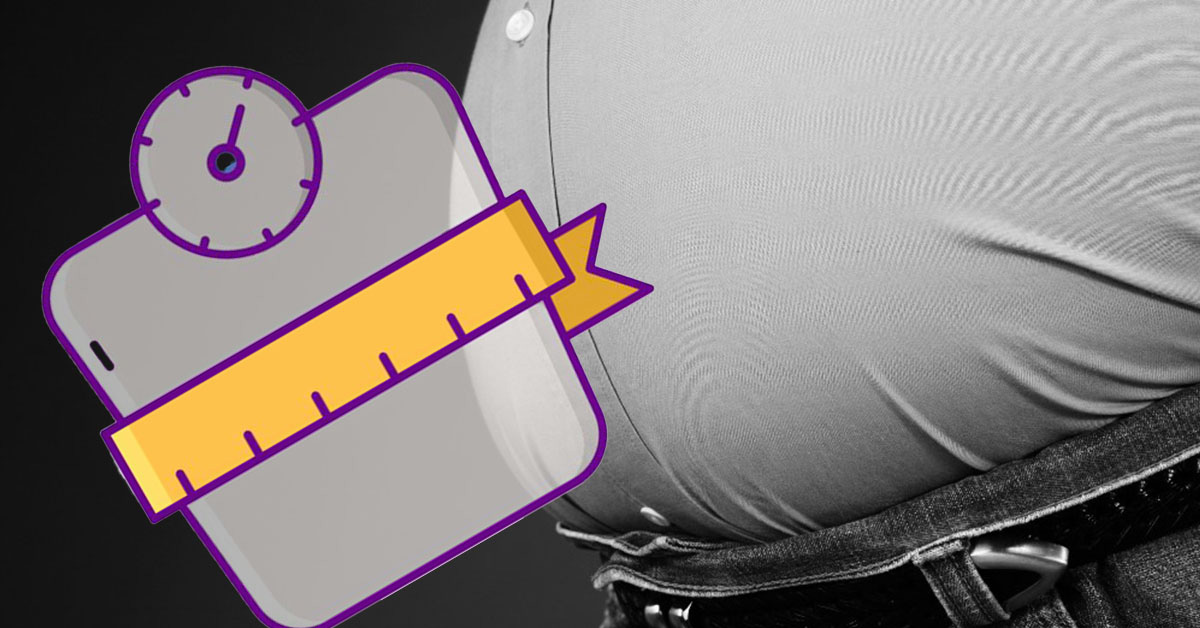
3. Are you obese?
Normally we use body mass index (BMI=weight/height2) to measure body fat based on height and weight which applies to adult men and women.
The chart below shows how the BMI can be interpreted.
However, BMI underestimates fatness in the elderly.
Being underweight can be especially serious for older people. It increases the risk of health problems, including bone fracture if you fall. It weakens your immune system, leaving you more susceptible to infections, and it increases your risk of being deficient in important nutrients such as vitamins and minerals.
Hence, we cannot just simply apply the recommended BMI range (18.5-24.9) for young adults to the elderly. To reduce the risk of being underweight, some publications suggest maintaining a BMI of 25-27 for elderly people. And watch out for unintentional weight loss especially in a short period, which could be due to an underlying serious illness that needs immediate medical review.
Besides BMI, waist circumference is the best predictor of mobility disability in men and women. According to the guideline from CDC, women with a waist circumference of more than 89cm and men with more than 102cm need to lose weight.
4. Do you need to lose weight?
There is no clear cut-off value based on current clinical guidelines for the elderly. You may discuss with your family doctor to check whether you need to lose some weight based on your medical condition to aim for a better life quality.
Based on the guideline for the young adults, it suggests intervention should be considered for weight control if your BMI exceeds 30 if you have no medical problems. If you have existing medical illnesses such as hypertension, cardiovascular disease, diabetes, etc., you should consider treatment if your BMI exceeds 27.
5. Which is better — exercise or diet control?
The answer is both.
A recent study found that diet plus exercise-induced weight loss effectively reduces pain and improves function and quality of life in older adults. And the result is significantly better than exercise or diet control alone.
6. How to stick with the plan?
Diet control for weight loss is a long journey.
It takes 3-12 months to see the full result and at least 2-4 years of maintenance.
The simple principle for diet control is to create a 500-750 kcal calorie deficit daily. Essentially, you need to eat fewer calories than you burn. You need to avoid or cut down sugary beverages/desserts, and high-fat food.
Another simple rule to plan a healthy meal is to eat ¼ share of grain (about one fist size), ¼ share of protein, and ½ share of vegetables and fruit. Elderly people need to pay more attention to taking a sufficient amount of protein.
But, don’t overdo it!
An extremely low-calorie diet (e.g., a total calorie of 500 kcal a day) will cause loss of muscle mass and reduce metabolite rate, which is not effective for weight control and will cause more harm than benefit for the elderly.
7. How to make a sustainable exercise plan?
Older adults should move more and sit less throughout the day. Keep in mind, that some physical activity is better than none.
The ultimate goal is to perform moderate-intensity exercise 30min x 5 days a week, or high-intensity exercise (e.g., HIIT) 25min x 3 days a week. A combination of aerobic exercise, muscle-strengthening activities (resistance training), and balance activities will yield the best results, including loss of fat mass and gaining lean mass.
Everyone’s fitness level is different. For those who rarely exercise, you need to start with shorter durations and lower intensity, and gradually increase the duration and intensity weekly or even monthly until your body slowly adapts to it.
8. Moderate or vigorous aerobic exercise?
When you are doing moderate-intensity exercise, you’ll notice that you’ll be able to talk, but not sing the words to your favourite song.
Examples of moderate-intensity exercise:
- brisk walking (at least 4 kilometres per hour)
- water aerobics
- dancing (ballroom or social)
- gardening
- tennis (doubles)
- biking slower than 15kmh
When you are doing vigorous-intensity activity, your heart rate will increase quite a bit, and you’ll be breathing hard. You won’t be able to say more than a few words without stopping to catch your breath.
You may want to consider recording your exercise with Task Management Apps on your smartphone (e.g., Habit), which helps you to establish a habit of doing things. Using an Apple watch or other fitness tracker to monitor your physical activities also helps. Group exercise is another good idea to motivate yourself to exercise.
9. What to do about those constant cravings?
To start with, you may find someone who wants to lose weight as well and form a group to support each other. Try to share daily meals and knowledge about how to eat healthily in the group.
If that fails, you may consider consulting your doctor, who may prescribe medication to control cravings and facilitate diet control. My advice is to always consult a doctor before you start taking any tablets/injections for weight loss.
Weight control is so hard due to numerous reasons no matter young or old. Since we realize the significance of doing it, let’s get started as early as possible.

